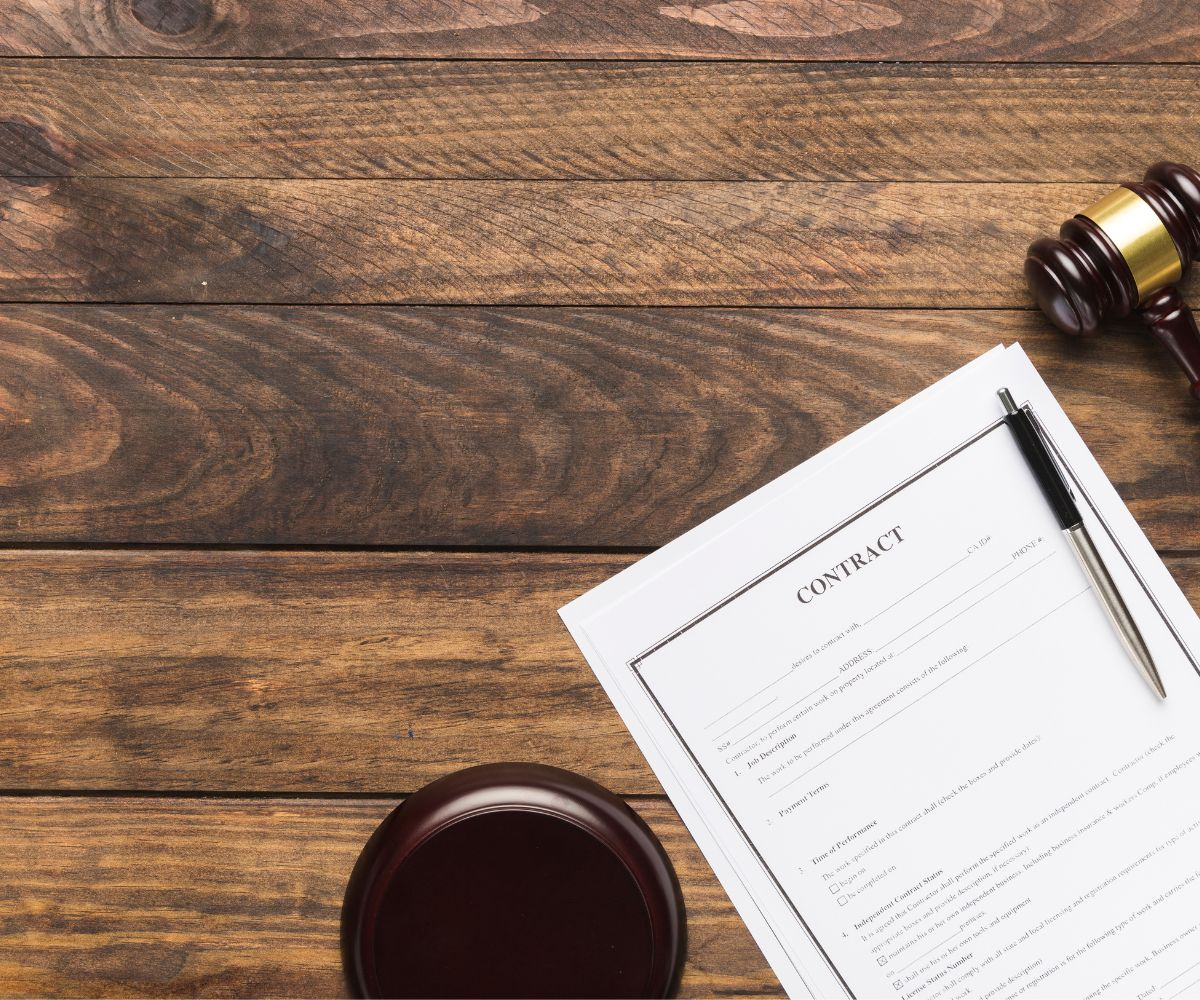Planning for the future is a critical responsibility that involves preparing for life's inevitable changes. As part of this process, creating an estate plan is crucial to ensure that your assets are distributed according to your wishes and that your loved ones are taken care of after you're gone.
However, creating an estate plan without the guidance of an experienced attorney can result in costly errors that could have severe consequences for your family's financial well-being.
In this article, we will explore common mistakes that people make when creating an estate plan without an attorney and why it's important to seek professional legal advice in the estate planning process. We will also discuss the benefits of working with an experienced attorney who can guide you through the process and help ensure that your wishes are carried out.
By the end of this article, you will have a better understanding of the importance of working with an attorney to create an effective estate plan that meets your unique needs and goals.
What Are the Most Common Mistakes When Creating An Estate Plan Without An Experienced Attorney:

Estate planning is one of the most important aspects of managing your finances and ensuring that your assets are distributed according to your wishes after you pass away.
However, creating an estate plan without the assistance of an experienced estate planning attorney can be risky, as there are many common mistakes that individuals tend to make.
Some of the most common estate planning mistakes that people make include:
Failing to Create a Comprehensive Plan:
One of the biggest mistakes people make when creating an estate plan independently is failing to create a comprehensive one. Estate planning is not just about creating a will; it also involves considering how your assets will be distributed, who will manage your affairs if you become incapacitated, and how your healthcare decisions will be made if you cannot make them yourself.
Without a comprehensive estate plan, you may leave important decisions up to chance, which can lead to conflict and confusion among your surviving spouse and other family members.
Not Updating the Plan:

Another common estate planning mistake is failing to update your estate plan regularly. Your circumstances can change over time, and your estate plan should reflect those changes.
For example, if you get married, divorced, have children, or acquire new assets such as a life insurance policy or personal property, you should update your estate plan accordingly. Failing to do so can result in your estate plan being outdated and no longer reflective of your wishes.
Not Considering All Assets:
When creating an estate plan, it is important to consider all of your assets, not just your bank accounts, life insurance policies, and real estate. Many people forget about their digital assets, such as social media accounts, email accounts, and online banking accounts. Failing to include these assets in your estate plan can lead to them being lost or inaccessible after your death.
Choosing the Wrong Beneficiaries:
Choosing the wrong beneficiaries is another common mistake people make when creating an estate plan on their own. For example, if you leave assets to a minor, they may not be able to manage them until they reach the age of majority. Similarly, leaving assets to someone who is not financially responsible may result in the assets being mismanaged or lost. It is important to choose beneficiaries who are responsible and capable of managing the assets you leave them.
Not Understanding the Laws:

Estate planning involves a complex set of laws and regulations that can be difficult for the average person to understand. One common mistake people make is failing to understand the laws related to estate planning. E.g., failing to understand the tax implications of leaving assets to beneficiaries can result in those assets being subject to unnecessary estate taxes.
If you're considering estate planning, it's important to understand federal estate tax laws and how they may affect the distribution of your assets. Neglecting this powerful estate planning tool or strategy can result in a large portion of your estate being subject to federal tax.
Not Creating a Power of Attorney:
A financial power of attorney is a legal document allowing someone else to make financial and healthcare decisions if you become incapacitated. Failing to create a power of attorney can leave important decisions up to chance and may result in conflict among your loved ones.
Not Creating a Living Will:

A living will is a legal document that specifies your wishes regarding end-of-life medical care. Without a living will, your loved ones may be left to make difficult decisions on your behalf, which can lead to conflict and confusion.
Without consulting with professional estate planning attorneys, you could be unknowingly leaving your estate plan incomplete without a living will. Having estate planning documents in place, including a living will, but not seeking professional advice could also lead to incorrect or invalid documents, leaving your wishes unenforced.
Not Considering Long-Term Care:
Finally, many people fail to consider long-term care when creating their estate plans. Long-term care can be expensive, and failing to plan for it can result in your loved ones being left with a significant financial burden. It is important to consider long-term care costs when creating your estate plan and to take steps to ensure that you are prepared for future healthcare needs.
To put that simply, creating an estate plan without an experienced estate planning attorney can be risky. There are many common estate planning mistakes that people tend to make, including failing to create a comprehensive plan, not updating the plan, not considering all assets, choosing the wrong beneficiaries, not understanding the laws, not creating a power of attorney, not creating a living will, and not considering long-term care which can all lead to confusion and a lack of protection for your assets.
Why It's Important To Seek Professional Legal Advice In The Estate Planning Process?

Estate planning is a crucial process that involves arranging the management and disposal of a person's assets after their death. While it is possible to create an estate plan without the help of an attorney, seeking professional legal advice can be highly beneficial. Below cited are a few reasons why it is important to seek professional legal advice when creating an estate plan.
Understanding Complex Legal Procedures and Regulations:
Estate planning involves complex legal procedures and regulations that can be challenging for the average person to navigate. An estate planning lawyer has the necessary knowledge and expertise to guide you through the process, explain the relevant laws and regulations, and help you make informed decisions about your estate plan. They can ensure that your estate plan is legally binding and protects your interests.
Tailoring Your Estate Plan to Your Unique Circumstances:

Every person's situation is unique, and an estate planning attorney can help you create an estate plan that is tailored to your specific needs and circumstances. They can advise you on the best way to protect your assets, minimize taxes, and avoid legal disputes.
An experienced attorney can also help you address specific concerns, such as providing for a child with special needs or a family member who requires long-term care.
Ensuring Your Estate Plan Is Up to Date:
An estate plan is not a one-time event. It needs to be updated regularly to reflect changes in your life, such as marriage, divorce, birth, or a significant change in your financial situation.
An estate planning attorney can help you review and update your estate plan to ensure that it reflects your current wishes and circumstances. By doing so, you can avoid potential legal disputes and ensure that your wishes are carried out in the event of your death.
Avoiding Legal Disputes:

Without an estate plan, your assets may be distributed according to state law rather than your wishes. This can lead to legal disputes among family members and other beneficiaries.
An estate planning attorney can help you create a clear and legally binding estate plan that reduces the risk of disputes and ensures that your wishes are carried out. By doing so, you can help prevent family conflicts and ensure that your legacy is preserved.
Minimizing Taxes and Other Expenses:
Estate planning can involve significant taxes and other expenses, such as probate court fees and legal costs. An estate planning attorney can help you minimize these expenses by creating a plan that takes advantage of tax-saving strategies and avoids probate wherever possible.
They can also advise you on the best ways to transfer your assets to your beneficiaries while minimizing taxes. By doing so, you can ensure that your assets are distributed as you wish and that your beneficiaries receive the maximum benefit.
Estate planning is a complex process that requires legal expertise and knowledge of the relevant laws and regulations. Working with a professional estate planning attorney can help you create a clear and legally binding estate plan that protects your interests, minimizes taxes and other expenses, and ensures that your wishes are carried out.
If you are considering estate planning, we highly recommend seeking the advice and guidance of an experienced attorney. By doing so, you can have peace of mind knowing that your assets are protected and that your wishes will be carried out in the event of your death.
What Are The Benefits Of Working With an Experienced Estate Planning Attorney:

Estate planning is a complex legal process that involves creating a plan for the distribution of your assets and properties after your death. To ensure that your wishes are met and your assets are distributed according to your desires, it is essential to work with an experienced estate planning attorney.
Here are some of the benefits of working with an experienced estate planning attorney:
Expertise and Knowledge:
Estate planning attorneys have specialized knowledge and expertise in the field of estate planning. They are well-versed in the laws and regulations governing estate planning and can provide you with sound legal advice on how to create a plan that meets your estate planning goals and objectives.
Customized Planning:
Estate planning attorneys can provide customized planning that meets your specific needs and objectives. They can help you identify your goals and create a plan that ensures your assets are distributed according to your wishes. An experienced attorney can help you navigate complex issues such as tax planning, retirement planning, and asset protection.
Avoiding Costly Mistakes:

Estate planning can be complex, and even small errors or omissions in the planning process can lead to costly mistakes. An experienced estate planning attorney can help you avoid these costly mistakes, such as failing to update your estate plan or failing to consider all of your assets.
Comprehensive Planning:
An experienced estate planning attorney will provide you with a comprehensive estate plan that covers all of your assets and properties. They will work with you to identify your assets, including real estate, investments, life insurance policy, and personal property, and create a plan that ensures that each asset is distributed according to your wishes.
Updating Your Plan:
Estate planning is not a one-time event. As your life circumstances change, your estate plan needs to be updated to reflect these changes. An experienced estate planning attorney can help you update your plan as needed to ensure that it remains current and meets your estate planning needs.
Peace of Mind:

Working with an experienced estate planning attorney can give you peace of mind knowing that your wishes will be met and your assets will be distributed according to your desires. An experienced attorney can also guide your loved ones during the estate administration.
FAQs
What are the two key documents used to prepare an estate plan?
When preparing an estate plan, there are two key documents that are essential to have in place:
- Financial power of attorney
- Will or living trust
A financial power of attorney allows you to appoint someone to manage your financial affairs in the event that you become unable to do so. This can include paying bills, managing investments, and making financial decisions on your behalf. It is important to choose a trustworthy and competent individual to serve as your agent and to define their powers and limitations clearly.
A will or living trust outlines your wishes for the distribution of your assets and properties after your death. It is important to have a will or living trust to ensure that your assets are distributed according to your wishes and to avoid disputes among your loved ones. A living trust offers the added benefit of allowing your assets to pass outside of probate, which can save time and money.
In addition to these two key documents, it is also important to have an advance care directive in place, which outlines your wishes for medical treatment in the event that you are unable to make decisions for yourself. This can provide important guidance to your loved ones and medical providers in the event of a medical emergency. Overall, having a well-crafted estate plan that includes a financial power of attorney and a will or living trust can provide peace of mind and ensure that your wishes are met. It is important to work with an experienced estate planning attorney to ensure that your estate plan meets your specific needs and goals.
What are the important factors to consider in estate planning?
Estate planning involves creating a comprehensive plan to manage and distribute your assets after your passing. Effective estate planning requires careful consideration of several factors to ensure your loved ones are taken care of, and your wishes are carried out.
Here are some of the essential factors to consider when planning your estate.
- Firstly, it's crucial to establish beneficiaries of your private funds or policies, such as life insurance policies, 401k plans, IRAs, and pensions. This step is easy to overlook, but it can significantly impact how your assets are distributed.
- Secondly, you need to draft a will that outlines how you want your assets to be distributed. A will is a legal document that appoints an executor to manage your estate, designates beneficiaries for your assets, and specifies any other final wishes you may have.
- Thirdly, it's essential to plan for the transfer of power in the event that you become incapacitated or unable to manage your affairs. Establishing a durable power of attorney and healthcare proxy can ensure that your financial and medical decisions are in capable hands.
- Fourthly, trusts can be an effective way to manage your assets and minimize estate taxes. A trust is a legal entity that holds your assets, and you can designate beneficiaries and trustees to manage the trust on your behalf.
- Finally, securing your estate planning documents is crucial. You should keep your documents in a secure location and inform your loved ones of their whereabouts.
Simply put, estate planning is a complex process that requires careful consideration of several important factors. Consulting with an experienced estate planning attorney can help ensure that your wishes are carried out, and your loved ones are taken care of after your passing.
Can you create an estate plan without the help of an estate planning attorney?
It is possible to create an estate plan without the help of an estate planning attorney, but it is generally not recommended. Estate planning is a complex and ever-changing area of law, and without proper knowledge and experience, it is easy to make mistakes that could cost you and your loved ones in the long run.
An estate planning attorney can provide you with the expertise and guidance needed to create a comprehensive estate plan that meets your unique needs and circumstances. They can help you navigate the legal requirements of creating a will, trust, or other estate planning documents, as well as provide advice on minimizing estate taxes and avoiding probate.
An estate planning attorney can also ensure that your estate plan is legally binding and enforceable and that your wishes are carried out according to your intentions. They can review and update your estate plan periodically to reflect changes in your life circumstances, such as marriages, births, or changes in financial status.
While it is possible to create an estate plan without the help of an attorney, it is generally not recommended. Consulting with an experienced estate planning attorney can provide you with the peace of mind and protection of a comprehensive and legally binding estate plan.


Submit a comment